Exploring the Mosquito Repellent Properties of Irish Spring Soap
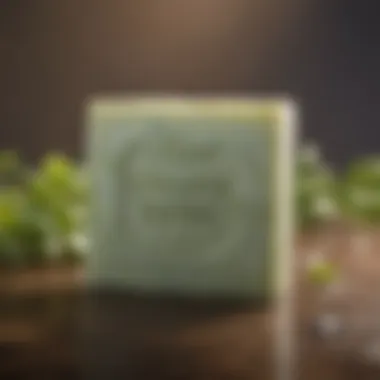
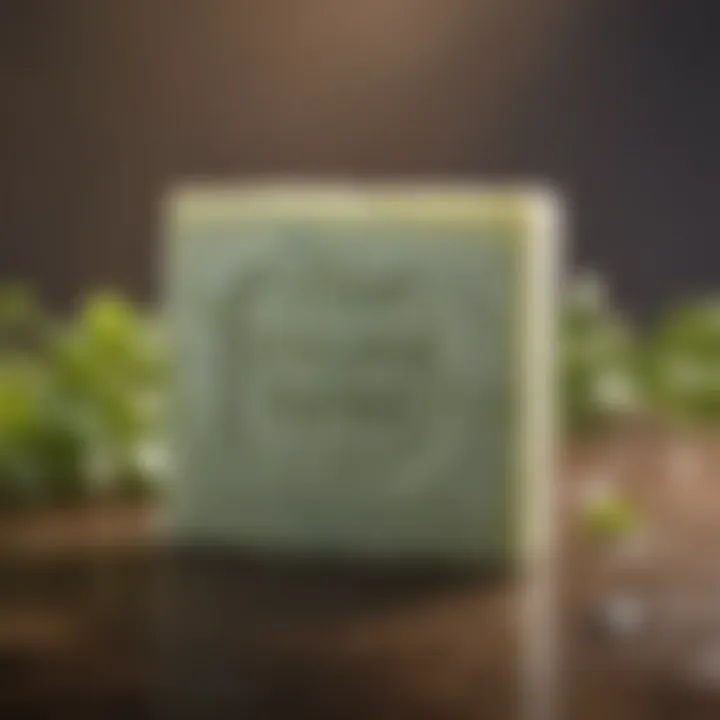
Intro
Mosquitoes are a common nuisance in many areas, especially during warm months. Finding effective methods to repel these insects is crucial for anyone who enjoys the outdoors. Among various proposed solutions, Irish Spring soap has gained attention as a potential natural repellent. This article aims to examine the claims associated with Irish Spring soap, exploring its chemistry, intended uses, and any evidence supporting its efficacy against mosquitoes.
In recent discussions, many people have shared personal anecdotes about the effectiveness of Irish Spring soap. Some claim that rubbing the soap on the skin or placing bars around outdoor areas can deter mosquitoes. However, anecdotal evidence alone is not definitive. Scientific validation is necessary to substantiate such claims. We will evaluate if the properties of Irish Spring soap contribute to repelling mosquitoes or if these assertions are merely coincidence.
The chemistry of Irish Spring soap will be a focal point of this exploration. Understanding the ingredients and their roles can provide insight into how they might interact with mosquito behavior. Additionally, we will consider how essential oils and fragrances may create barriers that affect mosquito attraction.
By dissecting these aspects, the goal is to provide comprehensive guidance on the practical applications of Irish Spring soap in pest control. We will also touch upon alternative solutions that could complement or enhance mosquito management strategies.
Understanding Mosquito Behavior
Understanding mosquito behavior is critical in evaluating the potential effectiveness of Irish Spring soap as a repellent. Mosquitoes are persistent insects that can be major nuisances and vectors for diseases. Recognizing their biology, feeding patterns, and breeding environments helps in crafting effective deterrents. This knowledge not only enhances one’s strategies for management, but also sets realistic expectations for any solutions applied.
The Biology of Mosquitoes
Mosquitoes belong to the family Culicidae. They undergo a complete metamorphosis, which includes egg, larval, pupal, and adult stages. Understanding these stages provides insight into their lifecycle and behaviors. Female mosquitoes are primarily the ones that require blood to develop their eggs. They possess specialized sensory organs that detect carbon dioxide and body heat, allowing them to locate hosts with precision.
The adults can live for a week to several months, depending on environmental conditions. Mosquitoes thrive in warm, humid climates, making certain regions more prone to infestations. Their ability to adapt to various habitats promotes their survival, complicating control efforts.
Feeding Patterns and Attraction
Feeding patterns of mosquitoes are influenced by several factors. Carbon dioxide, body heat, and certain body odors attract them to potential hosts. Scientific studies suggest that mosquitoes are particularly attracted to humans due to the lactic acid and ammonia present in sweat. Additionally, dark clothing can increase visibility to mosquitoes.
The timing of feeding often occurs during dawn and dusk, aligning with their heightened activity periods. For those seeking to reduce mosquito bites, understanding these patterns is essential. Simple measures can make a considerable difference.
Habitat and Breeding Conditions
Mosquito breeding takes place in stagnant water sources. Common breeding grounds include ponds, buckets, or even plant saucers that collect water. The female lays eggs on or near this water; they hatch into larvae in a matter of days. Furthermore, environmental factors like temperature and humidity can affect breeding cycles significantly.
Maintaining a clean and dry environment can limit breeding opportunities. Eliminating standing water is one of the most effective methods for reducing mosquito populations.
In sum, the dynamics of mosquito behavior are complex and multifaceted. By comprehending these elements, one can develop smarter and more effective pest control strategies, including testing alternatives like Irish Spring soap.
Composition of Irish Spring Soap
Understanding the composition of Irish Spring soap is crucial for evaluating its potential to repel mosquitoes. The ingredients determine the soap's effectiveness and compatibility with human skin. Moreover, they reveal how certain components may interact with mosquito biology and behavior.
Identifying the primary ingredients can help gauge their specific roles in possible repellent qualities. This section will explore the most significant aspects that contribute to this inquiry.
Primary Ingredients
The primary ingredients in Irish Spring soap include sodium tallowate, sodium palmate, and sodium cocoate. Sodium tallowate is derived from animal fats. Sodium palmate comes from palm oil, while sodium cocoate is made from coconut oil. Each of these components provides unique properties.
These ingredients serve as surfactants, which means they help water mix with oils and dirt, facilitating cleaning. However, they may also play a role in how the soap might affect mosquitoes. The fatty acids present in these ingredients can produce a certain texture and have a mild scent. This scent can either repel or attract mosquitoes, depending on the specific composition.
Fragrance and Additives
Irish Spring soap is well-known for its distinct fragrance, which is identified as fresh and clean. This scent arises from a blend of synthetic and natural fragrances. Some additives contribute to the soap’s overall sensory appeal, making it a consumer favorite.
Interestingly, the fragrance in soaps serves multiple purposes. It can offer a pleasant aroma during use but may also function as an insect repellent. Mosquitoes have a keen sense of smell, and specific scents can deter them or attract them, depending on how the scent resonates with their sensory receptors.
Some of the ingredients might also act as binding agents or preservatives that can affect the soap's longevity. The choice of fragrance and its concentration is thus pivotal in determining any repellent effect this soap may offer.
Chemical Interactions
The chemical interactions within Irish Spring soap can reveal insights into its potential effectiveness against mosquitoes. The interplay between ingredients can influence how the soap behaves in various situations. For instance, the blending of certain oils and surfectants could change their behavior when applied on skin or in the environment.
When Irish Spring is exposed to different conditions, like heat or humidity, these interactions may produce various volatile compounds. Some of these compounds may have repellent properties. Understanding these interactions requires further investigation to pinpoint any beneficial attributes related to mosquito management.
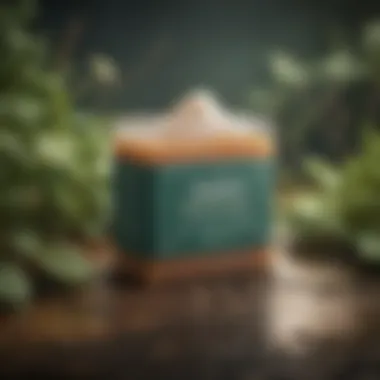
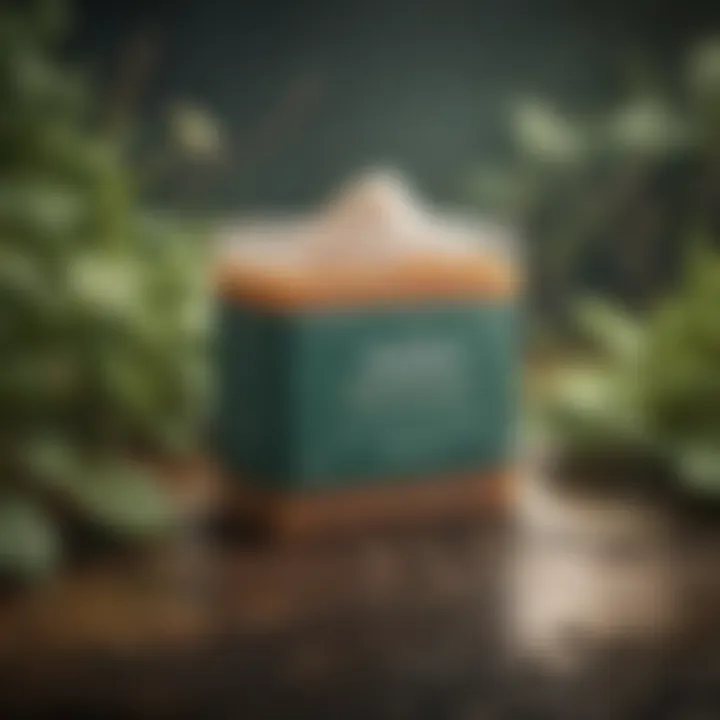
Key Point: Irish Spring soap's composition highlights the relationship between its ingredients and potential repellent qualities. This aspect can provide valuable insights for homeowners seeking practical solutions for mosquito issues.
Common Uses of Irish Spring Soap
Irish Spring soap has gained popularity not only as a personal hygiene product but also for various household applications. Understanding these uses enriches the conversation around its effectiveness in repelling mosquitoes. Examining the wide range of possibilities can illuminate its potential benefits, helping homeowners strategize more effective pest control methods. By exploring personal hygiene, cleaning applications, and anecdotal evidence related to pest repellent properties, we can better appreciate this versatile soap's roles in daily life.
Personal Hygiene Applications
Irish Spring soap is often touted for its refreshing scent and skin-cleansing properties. Many individuals utilize it for daily washing routines, considering it a staple in personal hygiene. The unique formulation of the soap helps eliminate dirt and grime, leaving a clean feeling after use. Its strong fragrance can also mask odors, which is particularly valuable for those who engage in outdoor activities.
However, it is essential to note that while the fragrance acts as a pleasant attribute for some, it may also have implications for insect behavior. The scent can either attract or repel mosquitoes based on their sensitivity to specific odors. Therefore, the appealing aroma of Irish Spring could have dual effects in outdoor settings, influencing the presence of mosquitoes.
Household Cleaning Applications
Beyond personal care, Irish Spring soap serves various cleaning functions within the household. It is often used for washing surfaces, enhancing the cleanliness of kitchens and bathrooms. The soap's antibacterial properties can aid in disinfecting surfaces, making it a sought-after choice for homeowners interested in maintaining a sanitary environment. Furthermore, its pleasant aroma can leave cleaning spaces smelling fresh.
Employing Irish Spring for cleaning tasks may also have secondary benefits related to pest control. A clean household tends to be less hospitable to insects, and using a soap with a fragrance known to potentially repel mosquitoes can add an extra layer of defense. Thus, while primarily recognized as a cleaning agent, Irish Spring can contribute positively to overall pest management efforts.
Pest Control Anecdotes
Over time, anecdotal evidence has emerged surrounding the use of Irish Spring soap as a mosquito repellent. Many users share experiences of placing the soap around their outdoor areas or mixing it with water for a more extensive repellent solution. These accounts span from positive results to skepticism regarding efficacy.
Some individuals report fewer mosquito encounters when using the soap, suggesting that its scent may act as a deterrent. Others, however, express doubts about its effectiveness, questioning whether the results are attributable to the soap itself or other environmental factors. Such anecdotes reflect a broader curiosity about the influence of common household items on pest behavior.
Consideration: Anecdotal reports should not replace scientific inquiry but can serve as starting points for further exploration.
In summary, Irish Spring soap holds a prominent place in both personal hygiene and household cleaning, alongside growing snippets of its role in pest control. These elements contribute to understanding its effectiveness as a mosquito repellent, leading to a more mindful approach in potential applications. Those seeking alternative solutions may discover that this everyday product can play a significant role in managing their environments, specifically regarding mosquitoes.
The Anecdotal Evidence
Anecdotal evidence plays a significant role in the conversation surrounding Irish Spring soap as a potential mosquito repellent. While scientific studies and research form the backbone of validated claims, personal experiences shared by users contribute valuable insight into the practical applications of this soap. Anecdotes help form a broader narrative that allows consumers to understand the soap's usage in real-life scenarios. By examining reported experiences and user testimonials, we can build a nuanced understanding of the effectiveness and limitations of Irish Spring soap in repelling mosquitoes. This information is particularly beneficial for homeowners, gardening enthusiasts, and those who regularly engage in outdoor activities.
Reported Experiences
Many individuals who use Irish Spring soap for mosquito repellent purposes have shared diverse experiences. Some users report a noticeable reduction in mosquito presence when the soap is used, whether through direct application to the skin or as a scent in the surrounding area. These users often cite their success stories while gardening or hosting outdoor events. They claim that a strategically placed bar of Irish Spring soap can deter mosquitoes effectively. In particular, the soap's strong fragrance is often mentioned as a factor that leads to fewer insect encounters.
However, it is important to note that individual experiences can vary widely. For some, the soap may not yield the desired results, leading to mixed feedback overall.
User Testimonials
- Positive Experiences:
- Skeptical Experiences:
- "I always have a bar of Irish Spring in my garden shed. Since I've been using it, I hardly see any mosquitoes when I'm outside."
- "I placed some bars around my patio during a family gathering, and it felt like we were mosquito-free all evening!"
- "I tried using it, but I still ended up with bites. Not sure if it's truly effective."
- "I hear people swear by it, but I didn't notice a difference compared to not using any repellent."
These testimonials reflect the subjectivity of personal experience. They emphasize the need for further investigation into both anecdotal support and scientific data to offer a more holistic view of the soap's efficacy. Ultimately, such testimonies provide a glimpse into how individuals incorporate Irish Spring soap into their pest control routines, enriching the discussion on this unusual method of mosquito deterrence.
Scientific Examination of Soap as Repellent
Understanding the scientific examination of soap, specifically Irish Spring soap, as a mosquito repellent is crucial for establishing its potential effectiveness. This inquiry delves into the empirical evidence surrounding the claims made about this household product. A methodical approach reveals essential insights into whether Irish Spring actually offers any degree of mosquito repellent capability or if the claims are mainly anecdotal.
By examining the components of the soap and their respective actions against mosquitoes, we can weigh the merits of using it against conventional, scientifically validated repellents. This analysis helps readers discern the reliability of such claims, encouraging informed decision-making when it comes to pest control practices.
Research Studies Overview
In recent years, there has been a surge of interest in unconventional mosquito repellents. Some independent studies have attempted to measure the efficacy of various soaps, including Irish Spring. However, concrete scientific inquiry remains limited. Preliminary research often highlights key components of soaps, exploring how certain ingredients may repel mosquitoes. These studies serve as a foundation for further investigation, though the results are mixed.
An important aspect of examining Irish Spring soap is how it compares to established scientific standards of repellents. Studies often include varied methodologies, which influence outcomes. They range from lab-based experiments to field studies. Variability in environmental conditions may also affect findings. Some researchers suggest that while soap may disrupt mosquito attraction, it may not provide long-lasting protection.
Efficacy of Soap Ingredients Against Mosquitoes


The effectiveness of Irish Spring soap relies heavily on its ingredient composition. The primary constituents, such as sodium tallowate and various synthetic fragrances, may have differing roles in repelling mosquitoes. Fragrances like mint or citrus are often noted for their potential to deter some insect species.
Many mosquitoes utilize olfactory cues in finding their hosts. Therefore, ingredients that can mask human scents or emit strong odors might play a role in repelling these pests. However, the effectiveness of these ingredients is often debated. Studies have shown that some ingredients do possess insect-repellent qualities, but specific scientific validation for Irish Spring remains sparse.
Comparison to Traditional Repellents
When comparing Irish Spring soap to traditional mosquito repellents, distinct differences surface. Common repellents like DEET or picaridin have undergone rigorous testing and have been proven effective in various environments. In contrast, Irish Spring lacks extensive research backing.
The mechanism of action also differs. Traditional repellents often repel mosquitoes by interfering with their sensory perception. Conversely, the effectiveness of soap as a repellent may be more dependent on its fragrance and less on a direct interaction with mosquito biology. While using Irish Spring might yield some short-term benefits, it may not provide prolonged or reliable protection like traditional solutions.
Factors Influencing Effectiveness
In determining the effectiveness of Irish Spring soap as a mosquito repellent, several factors play crucial roles. These elements not only influence the performance of the soap but also dictate how well it can serve its intended purpose. Understanding these factors can help users optimize their use of Irish Spring soap in environments where mosquitoes are prevalent. The key components to consider are environmental conditions, duration of effectiveness, and application methods.
Environmental Conditions
Environmental conditions significantly affect the performance of any mosquito repellent, including Irish Spring soap. Temperature, humidity, and wind speed are vital factors. Mosquitoes thrive in warm, humid environments, which can enhance their presence. If these conditions are favorable, even effective repellents can have diminished results.
For instance, the soap may offer some protection in moderate temperatures, but in a hot and humid setting, its effectiveness may wane more quickly. Additionally, high winds can disperse the soap’s fragrance, further reducing its ability to repel mosquitoes.
Duration of Effectiveness
The duration of effectiveness is critical in evaluating the utility of Irish Spring soap for mosquito repellent. After application, the soap may provide a certain level of protection against mosquito bites, but this protection is not permanent. Studies indicate that conventional repellents, such as DEET, can last for several hours, while the soap might require more frequent reapplication to maintain its effectiveness.
This aspect is important to note, as individuals in areas with high mosquito activity need to understand how long they can rely on Irish Spring soap before needing additional applications to ensure continued protection. It is logical to apply the soap periodically, especially during outdoor events.
Application Methods
How one applies the soap can also affect its repelling properties. When using Irish Spring soap as a repellant, ensure that it covers exposed skin adequately. However, the method of application matters. Rubbing the soap directly on exposed areas is one way, but this practice may not effectively transfer enough active ingredients onto the skin.
Alternatively, one could use a washcloth to lather and apply the soap, ensuring more uniform coverage. Users should measure their application technique as part of their strategy against mosquitoes.
By considering these three primary factors—environmental conditions, duration of effectiveness, and application methods—users can significantly increase the effectiveness of Irish Spring soap as a mosquito repellent.
Alternative Natural Repellents
Exploring alternative natural repellents is crucial when assessing how to combat mosquito populations. While chemical repellents like DEET have their place, many are drawn to the idea of natural solutions that might offer a more eco-friendly approach. Understanding the effectiveness, benefits, and considerations surrounding these alternatives can greatly assist those searching for effective means of mosquito control in their own living spaces.
Essential Oils and Their Properties
Essential oils are often heralded for their insect-repelling qualities. The volatility of these oils makes them appealing as they disperse easily into the air, creating a barrier that mosquitoes find unwelcoming. Commonly used oils such as citronella, eucalyptus, lavender, and peppermint have been noted for their effectiveness. These oils vary in their precise mechanisms; for instance, citronella works primarily by masking scents that attract mosquitoes. To use them effectively, they can be applied topically or diffused in indoor spaces. However, careful consideration around dosage and application methods is vital to maximize their potential without causing any adverse effects.
Plant-Based Repellents
Plant-based repellents offer another interesting avenue for those looking to minimize chemical exposure. Various plants exhibit natural repelling properties. For example, marigolds contain compounds that deter insects due to their strong scent. Similarly, basil, rosemary, and catnip have been found to possess qualities that may disrupt mosquito behavior. Employing these plants in landscaping or as part of gardening efforts can form a multi-layered defense against these pests while simultaneously enhancing outdoor aesthetics.
"Plant-based solutions provide a dual benefit: they repel mosquitoes and also beautify your garden."
Using a mix of these plants not only serves a functional purpose but can also integrate into your home or yard design pleasingly.
DIY Repellent Solutions
Creating DIY repellent solutions is an appealing option for many homeowners. Such solutions can be customized according to personal preferences and skin sensitivities. A popular recipe involves combining witch hazel with essential oils in a spray bottle for easy application. Another method includes mixing vinegar with water and adding a few drops of essential oils for added effectiveness.
When formulating these DIY mixes, certain considerations are necessary:
- Ensure all ingredients are skin-safe.
- Test any homemade mixture on a small skin area to rule out allergic reactions.
- Store any unused mixtures away from light and heat to maintain their efficacy.
By tapping into natural repellents, one can explore sustainable options for mitigating mosquito presence effectively. This approach aligns well with a growing focus on environmentally friendly solutions, while still aiming to achieve a comfortable outdoor experience.
Safety and Skin Reactions
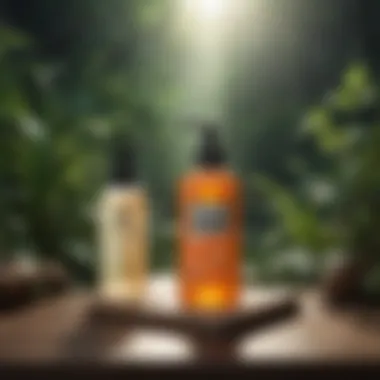
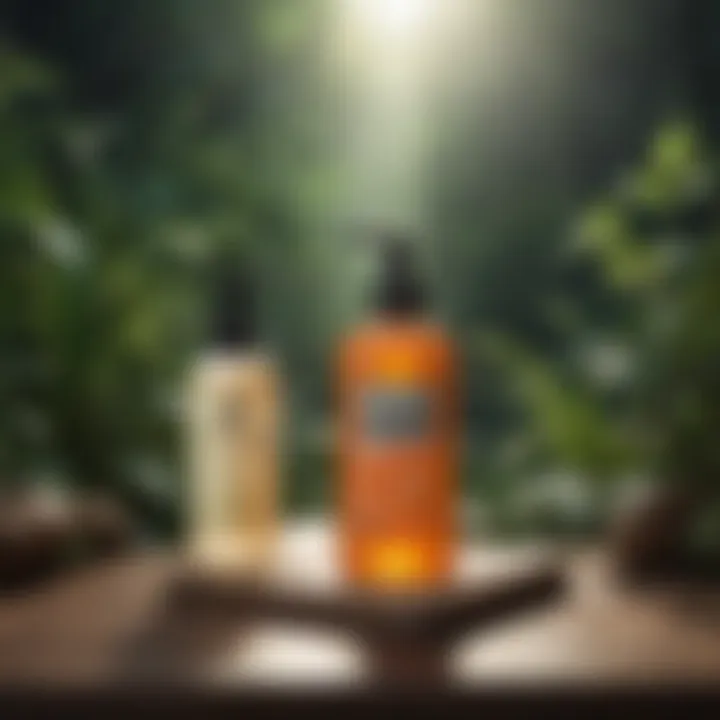
Understanding the safety and potential skin reactions associated with using Irish Spring soap as a mosquito repellent is crucial. Many consumers seek natural solutions to pest problems, but safety should always come first. While Irish Spring soap is a common household product, its application as a repellent can raise questions about skin tolerance and reactions.
Possible Allergic Reactions
Allergic reactions can occur when using almost any product on the skin, including soaps. Irish Spring soap, known for its strong fragrance and additional ingredients, might trigger allergic responses in some individuals. Symptoms could include:
- Redness
- Itching
- Rash
Those with sensitivities to fragrances or other chemical components should be cautious. It is advisable to perform a patch test before extensive use. To do this, apply a small amount of soap on a limited skin area and observe for any adverse reactions over 24 hours. If irritation occurs, discontinuing use is the safest option.
Skin Sensitivity Considerations
Skin sensitivity can vary greatly from person to person. Even if one doesn't have a known allergy, some might still experience irritation from the ingredients in Irish Spring soap. For example, individuals with eczema or other skin conditions might find that strong soaps exacerbate their symptoms.
Consider the following when using Irish Spring soap:
- Skin Type: Those with dry or sensitive skin should be more vigilant.
- Concentration: Applying the soap in larger quantities may increase the likelihood of irritation.
- Environmental Factors: Exposure to sun and heat might also contribute to skin reactions when using products like soap.
Monitoring your skin’s reaction in various contexts is essential. If any crimson bumps or burning sensations arise, it would be prudent to consult a dermatologist or healthcare provider for advice. Keeping health and safety in mind ensures that attempts to repel mosquitoes do not lead to discomfort or health issues.
Evaluating Effectiveness
Evaluating the effectiveness of Irish Spring soap as a mosquito repellent requires careful consideration of various factors. This section shines light on how real-world evidence aligns with theoretical claims made by manufacturers and users. The effectiveness can be observed through actual feedback from users and expert evaluations, which illuminate the soap’s practicality in pest control.
The significance of evaluating effectiveness lies in its potential implications for homeowners and outdoor enthusiasts seeking alternatives to traditional chemical repellents. With the growing concern over using harsh chemicals, a deeper understanding of what Irish Spring soap can accomplish is necessary. Its accessibility and ease of use add to its appeal when tabled against other options.
Furthermore, this analysis bridges anecdotal reports with scientific assessments, bringing clarity to the debate concerning natural repellents versus synthetic ones. In redefining what constitutes effectiveness, it also establishes a framework for consumers to weigh the pros and cons of employing Irish Spring soap versus conventional mosquito control methods.
End User Experiences
End user experiences can offer valuable insight into the effectiveness of Irish Spring soap against mosquitoes. Many users report varying success rates, drawing attention to specific factors that influence outcomes. Some find that regular application seems to help repel mosquitoes in areas where they frequent, such as gardens or patios. Others, however, argue that it may not offer significant protection over extended periods.
Common feedback includes:
- Short-term Relief: Most users notice that applying Irish Spring soap offers initial protection, making it easier to enjoy outdoor activities without immediate annoyance from mosquitoes.
- Scented Appeal: The distinct fragrance of Irish Spring is often cited as a pleasant side benefit, contributing to an environment that feels fresher while potentially warding off bugs.
- Varied Results: Many have noted different levels of success depending on personal body chemistry. This variance suggests that factors such as skin type and even diet may play roles in repellent effectiveness.
"I've used Irish Spring while camping, and it seemed to keep bugs away better than I expected. However, I had to reapply quite often, especially when it got hot." - User Testimonial
Expert Opinions
Expert opinions on the repellent properties of Irish Spring soap complicate the narrative established by user experiences. While some researchers express skepticism regarding the soap’s ability to deter mosquitoes effectively, others recognize its potential as part of a broader strategy for managing pests naturally.
The rationale is based on the composition of the soap and how it interacts with mosquitoes:
- Chemical Composition: Certain ingredients in Irish Spring may create a barrier that is unappealing to mosquitoes, but experts also note that this effect might be mild compared to other established repellents such as DEET.
- Synergistic Effects: Experts suggest that when combined with other natural repellents, Irish Spring may enhance overall effectiveness. Using it alongside essential oils, for instance, could mitigate some limitations observed when used solo.
- Context Matters: Experts agree that environmental conditions—such as humidity, temperature, and the presence of mosquito populations—are key in determining effectiveness. A study conducted in a damp environment, for instance, may yield different results than one done in dry conditions.
In summary, while end-user experiences present a promising view of Irish Spring soap's potential as a mosquito repellent, expert analysis offers a more tempered perspective. Understanding this divergence is vital for anyone considering its use for pest control.
Closures on Irish Spring Soap as a Mosquito Repellent
The exploration of Irish Spring soap as a potential mosquito repellent provides valuable insights into both natural pest control and the understanding of mosquito behavior. This section synthesizes varied elements of the previous discussions, highlighting the soap's composition, anecdotal claims, and any scientific backing. The importance lies not just in confirming or denying Irish Spring's effectiveness but also in assessing practical applications and safety considerations. For homeowners and gardening enthusiasts, the prospect of a readily available and inexpensive solution to repel mosquitoes can be appealing. However, further nuances and research merit attention.
Summary of Findings
The research and observations undertaken demonstrate that while Irish Spring soap may contain elements that can deter mosquitoes, its efficacy remains ambiguous. Key findings include:
- Chemical Composition: The soap comprises specific fragrance notes and additives that show repellent characteristics. However, the concentration may not match those found in traditional insect repellents.
- Anecdotal Evidence: Many users advocate for the soap’s effectiveness based on personal experiences rather than controlled studies. Their testimonials suggest that the aroma plays a role in masking human scents that attract mosquitoes.
- Limitations in Research: Scientific studies thus far do not conclusively support the use of Irish Spring as an effective repellent. Comparisons to conventional products reveal significant differences in active ingredients and duration of effectivity.
Overall, while some individuals may report positive experiences using Irish Spring soap, these are not universally applicable and many factors may influence results.
Recommendations for Application
For those considering using Irish Spring soap as a mosquito deterrent, several recommendations can enhance effectiveness:
- Direct Application: Rubbing the soap on exposed skin or clothing may provide some immediate relief, but always conduct a patch test to check for skin sensitivity.
- Soap Bar Placement: Placing bars of Irish Spring in outdoor areas or near gardens might help deter mosquitoes. Some users suggest hanging them in repurposed mesh bags.
- Complementary Measures: Given the mixed findings, consider using Irish Spring in conjunction with proven repellents that contain DEET or picaridin for a balanced approach to mosquito management.
- Consistent Monitoring: Assess the effectiveness regularly. Note any changes in mosquito activity when using the soap versus other methods or products.
Ultimately, while Irish Spring soap might offer a temporary and mild deterrent, relying solely on it may lead to frustration. The nuanced blend of anecdotal experiences and scientific uncertainty necessitates a cautious approach.















